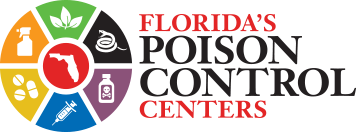Pesticides
A pesticide is any substance or mixture of substances intended for the prevention of, destroying, repelling or mitigating any pest. This term also applies to herbicides, fungicides and various other products used to control pests. Most pesticides can cause harm to humans, animals or the environment because they are designed to kill or otherwise adversely affect living organisms. At the same time, pesticides are useful to society since they can kill potential disease-causing organisms and control insects, weeds and other pests.
What Are the Symptoms of Pesticide Exposure
The health effects of pesticides depend on the exact type of pesticide. Some, such as organophosphates and carbamates, affect the nervous system. Others may irritate the skin or eyes. Some may be carcinogens. Others may affect the hormone system in the body.
One can be poisoned from a one-time exposure or have delayed effects from repeated exposure over a long period of time.
Some of the symptoms of pesticide exposure or poisoning may include headache, vomiting, diarrhea, rapid heart rate, blurred vision, tremors, dizziness, muscle weakness and trouble breathing.
Prevention Strategies
- Always lock up all pesticide products in a cabinet or garden shed, away from children and pets.
- Read the label first and follow all directions carefully.
- Seal products after each use.
- Remove children, pets and toys from the area before applying pesticides.
- Never transfer pesticides and other chemical products to containers that could be mistaken for food or drink.
- Never leave pesticides unattended when you are using them.
- Keep children and pets away from an area that has been treated with pesticides until the pesticide has dried or as long as recommended on the label.
- Wear recommended protective gear when applying a pesticide. Shower after applying a pesticide product.
- Call the poison center immediately at 1-800-222-1222 if anyone in your household is exposed to a pesticide, or develops any symptoms after applying a pesticide.
For more information about choosing and using a pesticide safely, contact the National Pesticide Information Center at 1-800-858-7378 or www.npic.orst.edu.

